DIN1624 4 Pronged T Nuts Threaded Insert Four Claw Tee Nut for Furniture
DIN1624 4 Pronged T Nuts Threaded Insert Four Claw Tee Nut for Furniture
- Descrição
- Avaliações (0)
Descrição
What Are 4 Pronged T Nuts?
4 pronged T nuts (also called tee nuts or claw nuts) are specialized fasteners designed to create durable threaded anchors in wood, composite materials, and soft metals. These nuts feature:
A flat, T-shaped base that sits flush against the material surface
Four sharp, downward-facing prongs that dig into the material when installed
A threaded barrel (typically internal threads) to receive bolts or machine screws
The four-prong design provides superior pull-out resistance compared to standard T-nuts, preventing rotation and loosening under vibration or heavy loads. They’re installed by hammering or pressing the prongs into pre-drilled holes, creating permanent threaded points in materials that can’t be tapped directly.
Materials for 4 Pronged T Nuts
These nuts are available in various materials to suit different applications:
Carbon Steel
Grade 1018/1022: Standard grade for general woodworking and furniture
Case-Hardened Steel: Surface-hardened for increased wear resistance in high-stress applications
Stainless Steel
304 (18-8): Good corrosion resistance for indoor/outdoor use
316: Marine-grade for saltwater/chemical exposure
Brass
C36000: Used in marine applications where galvanic corrosion is a concern
Decorative applications where appearance matters
Zinc Alloy
Zamak: Cost-effective option for light-duty applications
Surface Finishes
Surface treatments enhance performance and longevity:
Zinc Plating (Yellow/Blue/White): Basic corrosion protection (3-12μm thickness)
Hot-Dip Galvanizing: Heavy-duty protection for outdoor use
Black Oxide: Improves lubricity and mild corrosion resistance
Nickel Plating: Enhanced wear resistance and decorative finish
Passivation (Stainless Steel): Maximizes corrosion resistance
Specifications & Sizes
4 pronged T nuts come in standardized dimensions:
Thread Sizes: #8-32 to 5/8″-11 (common) or M4-M16 metric
Prong Length: Typically 3-10mm depending on material thickness
Flange Diameter: 12-30mm to distribute load
Barrel Length: 6-25mm to accommodate different material thicknesses
Standards: ANSI/ASME B18.6.9, DIN 929, or custom OEM specs
Applications
These versatile fasteners are essential in:
Furniture Manufacturing: Bed frames, table legs, and modular furniture
Woodworking: Workbenches, jigs, and cabinetry
Musical Instruments: Guitar neck plates, drum hardware
Playground Equipment: Swing sets and climbing structures
Industrial Machinery: Fixtures and tooling plates
DIY Projects: Workbench vises and shop fixtures
Excellent Case: Heavy-Duty Workbench System
Challenge
A manufacturer of professional woodworking benches needed a fastener solution that could:
Withstand constant pounding from mallet work
Resist loosening from vibration (planers, jointers, etc.)
Allow tool-free reconfiguration of bench accessories
Support 500+ lbs of downward force
Solution
The company implemented case-hardened 5/16″-18 4-pronged T-nuts with:
Extra-long 12mm prongs for deep penetration into hardwood
Reinforced flange to prevent pull-through
Zinc-nickel plating for corrosion resistance from glue/sweat
Installation process:
CNC-drilled precision holes in maple bench tops
Hydraulic-pressed T-nuts for consistent seating
Used shoulder bolts for alignment-critical components
Results
Zero fastener failures after 3 years of daily shop use
30% faster accessory changes vs. traditional bolting
Eliminated bench wobble from loose connections
Reduced warranty claims by 75% compared to previous fastener systems
Conclusion
4 pronged T nuts solve critical fastening challenges in wood and composite materials by combining:
Instant threaded inserts without tapping
Vibration-resistant grip from multiple prongs
Load distribution through wide flanges
Material versatility from various metal options
Whether for industrial manufacturing or DIY projects, these nuts provide reliable, long-lasting threaded connections where traditional fasteners fail. Their simple installation belies their engineering sophistication – making them indispensable for anyone working with wood or soft materials.

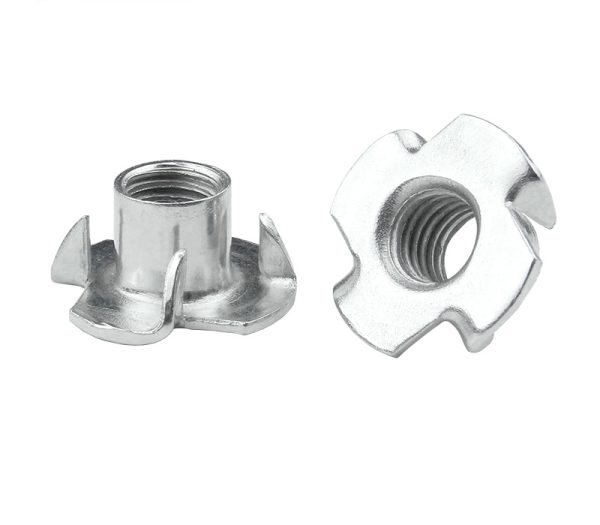
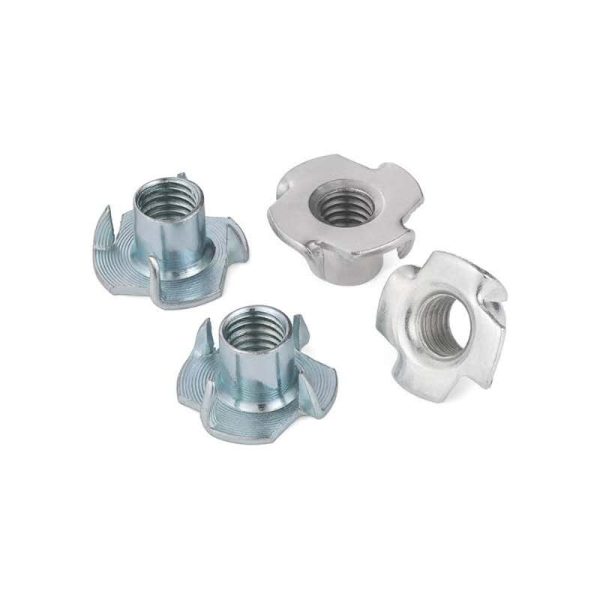
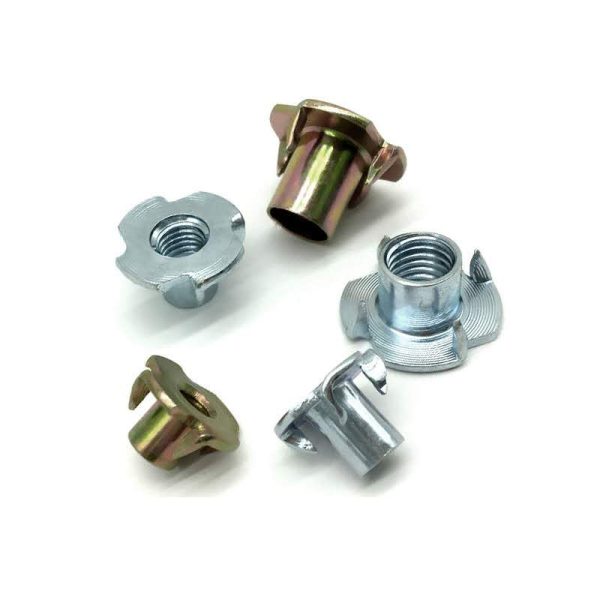
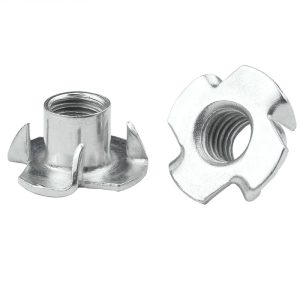
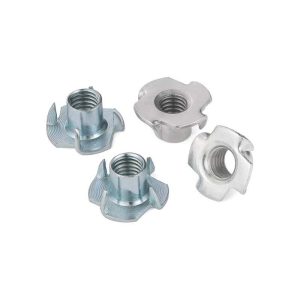
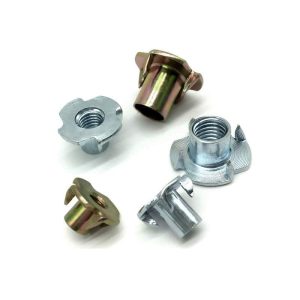

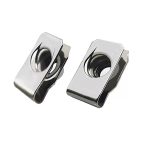
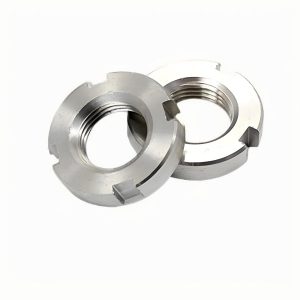
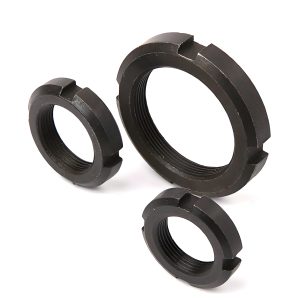
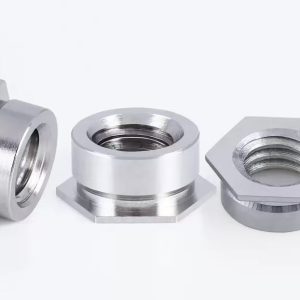
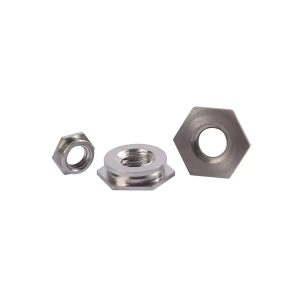
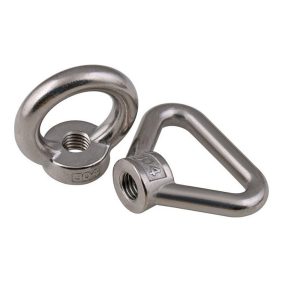
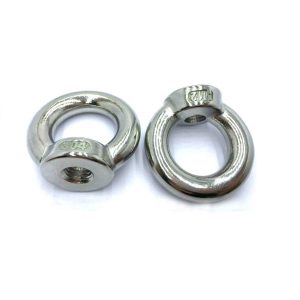
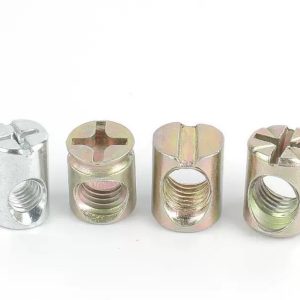
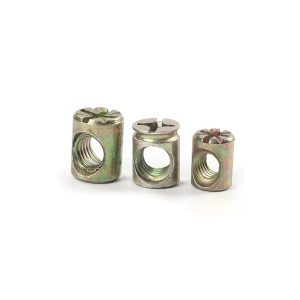
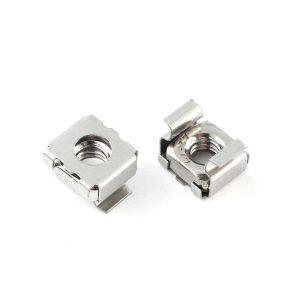
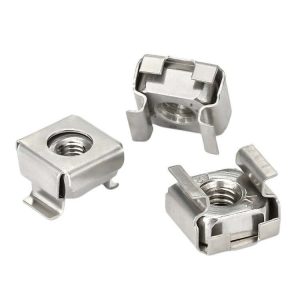
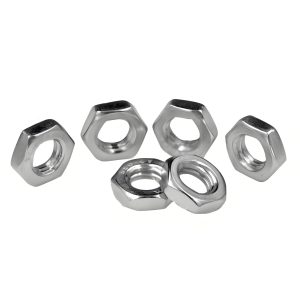
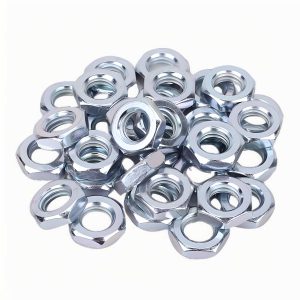
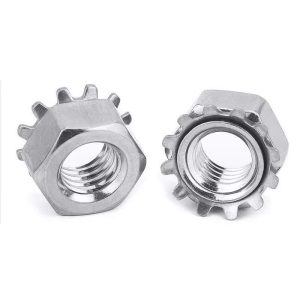
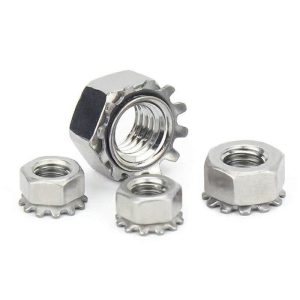
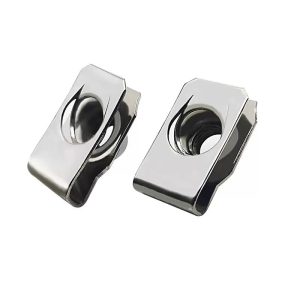
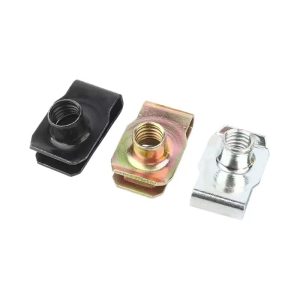
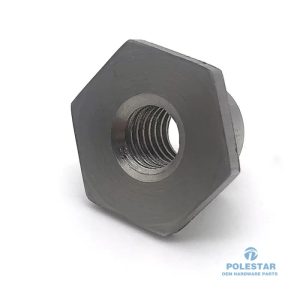
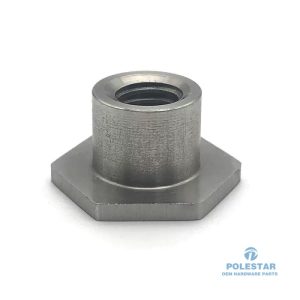
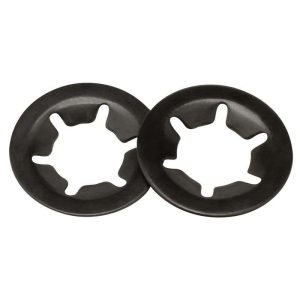

Avaliações
Ainda não existem avaliações.